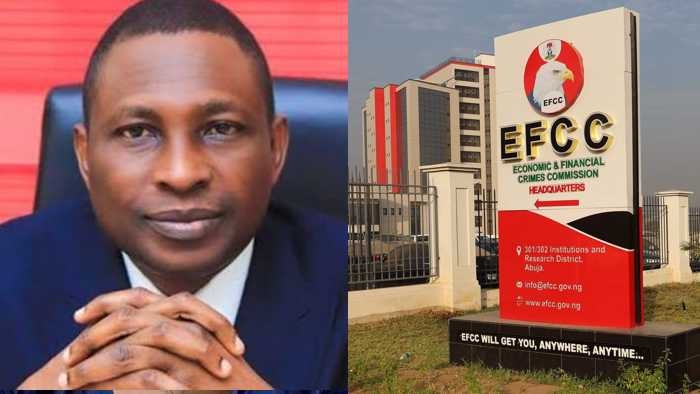Editorial: The EFCC’s Misguided Pursuit of Yahaya Bello Undermines Justice
The treatment of Yahaya Bello, the immediate past governor of Kogi State, by the Economic and Financial Crimes Commission (EFCC) has raised alarm over the agency's approach to its duties. The EFCC, tasked with investigating corruption and financial misdeeds, must be careful not to tarnish its own credibility through actions that appear more political than procedural.
Accused of money laundering and mismanagement of state resources, Yahaya Bello took the proactive step of presenting himself at the EFCC headquarters in Abuja, accompanied by Governor Usman Ododo and several supporters. Despite this gesture, he was told to leave without facing any interrogation. In a baffling twist, the agency later issued a public statement declaring Bello a wanted man.
Matters escalated further that night when EFCC agents allegedly surrounded the Kogi State Government Lodge in Asokoro, Abuja, with the aim of arresting the former governor. According to his media aide, Michael Ohiare, shots were fired during this dramatic siege. Such an aggressive and unnecessary show of force, especially against someone who had earlier complied with the EFCC, raises serious concerns about the agency's real motivations.
The situation points to a deeply troubling inconsistency in the EFCC’s approach. If Yahaya Bello was indeed under suspicion, the agency had ample opportunity to engage with him during his voluntary visit. Instead, it chose to mount a siege at night, a tactic that undermines its stated mission of transparency and fairness. This shift in approach reeks of desperation and suggests that the EFCC may be acting under external pressures.
The Nigerian public is growing increasingly wary of institutions that appear to serve political interests rather than the law. The EFCC’s behavior in this case risks furthering the perception that it has lost its impartiality. When a former governor, who shows a willingness to cooperate, is treated like a fugitive, the optics are damaging not only to the individual but to the integrity of the entire anti-corruption effort.
Rather than resorting to unnecessary force, the EFCC should focus on presenting its case in a court of law, following due process and allowing justice to run its course. The dramatic events at the Kogi Lodge served no purpose but to tarnish the reputation of the agency and to cast doubt on its commitment to fairness.
If the fight against corruption is to be taken seriously, the EFCC must avoid any appearance of bias or political maneuvering. It should be driven by facts, evidence, and the law, not by a desire to stage high-profile raids. Actions like those witnessed in this case only undermine public trust in an institution that plays a critical role in Nigeria’s governance.
To restore its credibility, the EFCC must ensure that its investigations and actions are beyond reproach, free from any suggestion of bias or undue influence. Only by adhering strictly to the principles of justice can it regain the confidence of the Nigerian people and continue to hold those guilty of corruption accountable.











Comments
Post a Comment